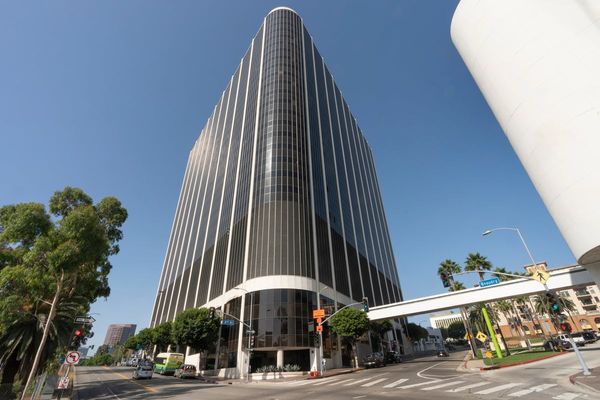
This is the first in a three-part series examining how Marie Stopes became the leading provider of abortion services in Australia, the sole provider of RU486, concerns about its dominance, and what the future holds.
Australia’s private abortion market is dominated by a single player. Marie Stopes International (MSI) Australia operates 10 clinics that conduct tens of thousands of medical and surgical abortions, plus vasectomies, tubal litigations and contraception insertions — earning tens of millions of dollars.
The not-for-profit also controls Australia’s supply of medical abortion drugs. Its subsidiary, MS Health (also a not-for-profit), is the only pharmaceutical company that supplies the two drugs necessary to induce abortion: mifepristone (also known as RU486) and misoprostol.
MSI Australia is also responsible for training and accrediting doctors with the right to prescribe medical abortion drugs. It conducts these sessions online for free.
The organisation was pivotal in making abortion accessible in Australia.
MS Health was established in 2012 after other pharmaceutical companies failed to apply to supply the drug after decades of anti-abortionist governments. Put simply, without its two decades of advocacy, lobbying and investment, abortion services would be unlikely to be as accessible in Australia as they are today.
But critics have raised concerns about its monopoly, pricing and advocacy incentives. Although the two-step medical abortion pills cost just $42.50 under the Pharmaceutical Benefits Scheme (PBS), it’s standard to pay upwards of $550 for a medical abortion in private clinics across Australia.
How Marie Stopes International rose to prominence
Founded in the UK in 1976 and named after British campaigner for eugenics and women’s rights Marie Stopes, MSI operates across 37 countries with 9000 staff. Last year 17.3 million people accessed contraception, abortion or post-abortion care services with MSI across the globe.
MSI entered Australia in 2000. It quickly expanded, acquiring two Sydney clinics run by GS Brodie in 2007, before acquiring Planned Parenthood clinics in Brisbane in 2011. By 2015 it had provided more than a third of all abortion services in the country. It said it planned to generate a profit to support services in developing countries.
In 2009, after an investment by its UK parent company, MSI Australia developed MS Health and became the first — and only — company to supply mifepristone to Australia. (More on this in part two.)
Does Marie Stopes have a monopoly?
Private clinics have struggled to stay afloat: the Tabbot Foundation (named after Tony Abbott for his anti-abortion stance) was Australia’s first provider of Telehealth abortion services after launching in 2015. It survived for just four years. Its medical director Paul Hyland told Buzzfeed News in 2017 that MSI had set higher prices in some regions with low competition and claimed it had a “monopoly” over the market in some regions.
Founder and managing director of Clinic 66 (which runs Telehealth service Abortion Online) Dr Emma Boulton told Crikey that Australia needed greater competition in the abortion market. She said Marie Stopes had been extremely successful at getting its name onto online health resources, which made it top of the list for women searching.
Boulton said some of her clients had experienced long wait times: “If you have a monopoly you can get lazy … because the business is going to come to you anyway. There’s just not enough competition in Australia.”
MSI Australia denies having a monopoly, and points to other state-based private, public and non-profit providers of abortion care in each state and territory. It was unable to provide data on how many abortions it conducts each year but acknowledged it was the largest and preferred provider of abortion care.
“MSI Australia has traditionally picked up the slack for the public system in many parts of Australia, supporting women and pregnant people with free and subsidised services even when government funding is not available,” its managing director Jamal Hakim told Crikey.
How Marie Stopes makes its money
In 2020, MSI Australia generated $44.4 million, $38.3 million of which came from providing contraception and terminations. In 2015 it provided more than a third of all abortion services in the country.
Head of policy Bonney Corbin said medical and surgical abortions are subsidised from other services: “MSI Australia does not look at abortion as a revenue-generating service.”
About 12% of its 2020 revenue came from government grants and less than 1% from donations. It made only a $738,976 surplus (though as a registered charity, this is used to support other health services and programs in Australia and abroad). It operated at a loss in 2014 and 2015, and its 2021 report has not been released. (It is marked “overdue” by the Australian Charities and Not-for-Profits Commission.)
Data on how many abortions take place in Australia each year is difficult to collate because of different reporting in each jurisdiction. One study found there had been more than 88,000 abortions between 2017 and 2018.
Despite being the largest private abortion provider, MSI Australia’s prices aren’t the lowest available. It charges a minimum of $620 for a surgical abortion, a minimum of $550 for medical abortions (this drops to $432.70 if done by Telehealth) and $620 for a dilation and curettage to remove tissue following an incomplete abortion.
MSI Australia’s cost estimate and service finder tool lists services available only at its clinics and does not compare prices across private providers. In states where abortions are fully integrated into the public health system and are free for Medicare card holders, the site simply says it is “not possible to book … at this time”.
The Women’s Clinic in Victoria charges minimums of $400 for surgical abortion and $250 for a medical abortion, and 1800MyOptions estimates medical abortions can cost as little as $100 at private clinics across the state. In NSW, Clinic 66 charges $470 for a surgical abortion, and Telehealth provider Abortion Online charges $255 for a medical abortion. These prices are for patients with Medicare cards.
Clinic 66’s Boulton said it had operated at a loss before Medicare rebates for Telehealth services were introduced across the pandemic and the company was able to pass those cost savings on to patients. She believes it is cheaper than MSI Australia because of the international organisation’s massive overheads — Clinic 66 has just one physical clinic, but services the whole country.
Unlike surgical abortions, medical abortions don’t require anaesthesia, surgical instruments or physical clinics. Yet in some clinics, medical abortions cost more than surgical abortions: the two-step mifepristone and misoprostol pills cost $42.50 under the PBS. In South Australia, where abortion has been introduced to the public system, this is often the only charge to Medicare card holders.
But chair of general practice at Monash University and a leader in women’s health Professor Danielle Mazza said people underestimated the cost of providing medical abortions, largely because of risk management.
“There’s a lot of time involved — usually at least three consultations that are needed [for medical abortions] to discuss options, see if the person needs an ultrasound scan, have a consultation to explain the procedure, and locate a pharmacy that dispenses it and make sure the process is complete and has actually occurred,” she said.
“[MSI Australia] needs to charge what they need to charge to be viable and I would much rather them being viable than not.”
A 2017 study found nearly a quarter of women surveyed reported the costs as a challenge in accessing an abortion, and one in three found it difficult to very difficult to afford one.
MSI Australia also operates the Choice Fund, which provides no- or low-cost abortion services to those who meet the criteria for financial difficulties.
“There are considerable regulatory costs associated with abortion care and we subsidise the majority of abortions we deliver,” Hakim said. “We also offer reduced cost and free services on a needs basis, dependent on the support of private donors who give to the Choice Fund.”







